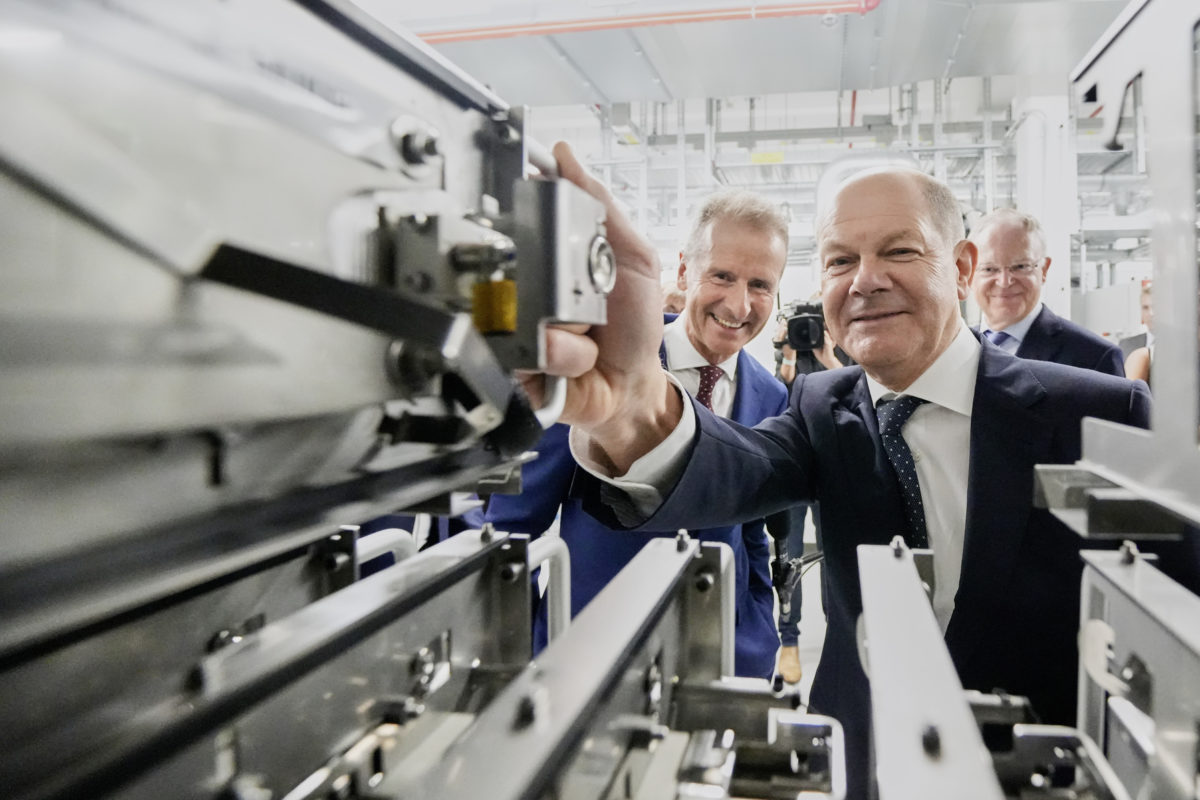Volkswagen has broken ground on its first battery cell factory in Salzgitter, Germany. Its new company, PowerCo., is scheduled to start production in 2025. It aims to eventually reach an annual capacity of 40 GWh, which is enough for about 500,000 electric vehicles. The Salzgitter cell factory will serve as a blueprint for the German car manufacturer’s “global battery offensive.” It plans to establish six cell factories in Europe with a total volume of 240 GWh, with potential plans to expand into North America. The factories will run on 100% renewable electricity, with plans for future closed-loop recycling.
Northvolt has revealed that it will use a $1.1 billion convertible note to finance the “expansion of battery cell and cathode material production in Europe to support the rapidly expanding demand for batteries.” The Swedish manufacturer – which aims to provide “the world’s greenest battery” – has secured the backing of investors such as Volkswagen and Goldman Sachs. It said that it wants 50% of its raw material requirements to be sourced from recycled batteries by 2030. It is now developing manufacturing capacity to deliver on $55 billion of orders from a range of key customers, including BMW, Fluence, Scania, Volvo Cars, and Volkswagen.
Mercedez-Benz Energy has signed an agreement with Canadian startup Moment Energy to use its electric-vehicle batteries in second-life stationary storage applications. Moment Energy will integrate retired Mercedes-Benz batteries into its new 60 kWh energy storage systems. It plans to deploy two systems later this year at God’s Pocket Resort, a Canadian off-grid dive resort that is currently being powered by diesel generators. Moment Energy’s scalable 60 kWh modules operate at either 480 V or 208 V and are said to offer a rated power output of 40 kVA to 320 kVA. Earlier this year, Mercedes-Benz agreed to supply its used EV batteries to Swedish startup BatteryLoop.
Popular content
OPES Solutions has set up a customized assembly line to directly integrate 365 W solar modules onto the rooftops of Westfalia camper vans. The line went into operation at the beginning of the year at the Westfalen Mobil in Rheda-Wiedenbrück, Germany. OPES Solutions designed the light, frameless solar modules in collaboration with Fraunhofer CSP. The manufacturer said the thin solar panels can withstand extreme climate conditions and vibration. The modules send power to the batteries through an MPPT charge controller. “Vehicle-integrated photovoltaic is not only about developing and manufacturing suitable solar technology, but always about the holistic approach to a complete solution,” said OPES Solutions CEO Robert Händel.
SAIC Motor has set up a joint laboratory with Chinese startup ChingTao Energy Development to develop solid-state batteries for application in electric vehicles by as early as next year. The Shanghai-based automaker said the new lab will focus on the mass production of solid-state batteries with ranges of more than 1,000 kilometers and 4C fast-charging technology. ChingTao Energy recently began building a 10 GWh solid-state battery factory in Kunshan, in China's Jiangsu province. It will be the company’s second factory, following the opening of a 1 GWh solid-state lithium battery production line in 2020.
This content is protected by copyright and may not be reused. If you want to cooperate with us and would like to reuse some of our content, please contact: editors@pv-magazine.com.



4 comments
By submitting this form you agree to pv magazine using your data for the purposes of publishing your comment.
Your personal data will only be disclosed or otherwise transmitted to third parties for the purposes of spam filtering or if this is necessary for technical maintenance of the website. Any other transfer to third parties will not take place unless this is justified on the basis of applicable data protection regulations or if pv magazine is legally obliged to do so.
You may revoke this consent at any time with effect for the future, in which case your personal data will be deleted immediately. Otherwise, your data will be deleted if pv magazine has processed your request or the purpose of data storage is fulfilled.
Further information on data privacy can be found in our Data Protection Policy.